Ford Explorer EV vs Peugeot 308 – Differences & prices compared
Everyday use, family trips or long-distance drives – here’s where the differences show.
Discover whether Ford Explorer EV or Peugeot 308 fits your lifestyle better.
Costs and Efficiency:
When it comes to price and running costs, the biggest differences usually appear. This is often where you see which car fits your budget better in the long run.
Peugeot 308 has a somewhat advantage in terms of price – it starts at 29200 £, while the Ford Explorer EV costs 34200 £. That’s a price difference of around 4963 £.
In terms of energy consumption, the advantage goes to the Ford Explorer EV: with 14.50 kWh per 100 km, it’s barely noticeable more efficient than the Peugeot 308 with 15.20 kWh. That’s a difference of about 0.70 kWh.
As for range, the Ford Explorer EV performs evident better – achieving up to 602 km, about 183 km more than the Peugeot 308.
Engine and Performance:
Under the bonnet, it becomes clear which model is tuned for sportiness and which one takes the lead when you hit the accelerator.
When it comes to engine power, the Ford Explorer EV has a decisively edge – offering 340 HP compared to 195 HP. That’s roughly 145 HP more horsepower.
In acceleration from 0 to 100 km/h, the Ford Explorer EV is significantly quicker – completing the sprint in 5.30 s, while the Peugeot 308 takes 7.60 s. That’s about 2.30 s faster.
In terms of top speed, the Peugeot 308 performs to a small extent better – reaching 225 km/h, while the Ford Explorer EV tops out at 180 km/h. The difference is around 45 km/h.
There’s also a difference in torque: Ford Explorer EV pulls convincingly stronger with 679 Nm compared to 300 Nm. That’s about 379 Nm difference.
Space and Everyday Use:
Whether family car or daily driver – which one offers more room, flexibility and comfort?
Both vehicles offer seating for 5 people.
In curb weight, Peugeot 308 is noticeable lighter – 1436 kg compared to 1908 kg. The difference is around 472 kg.
In terms of boot space, the Ford Explorer EV offers slight more room – 450 L compared to 412 L. That’s a difference of about 38 L.
In maximum load capacity, the Ford Explorer EV performs barely noticeable better – up to 1422 L, which is about 99 L more than the Peugeot 308.
When it comes to payload, Ford Explorer EV to a small extent takes the win – 585 kg compared to 510 kg. That’s a difference of about 75 kg.
Who wins the race?
The Ford Explorer EV proves to be wins the duel decisively and therefore becomes our DriveDuel Champion!
Ford Explorer EV is the better all-rounder in this comparison.
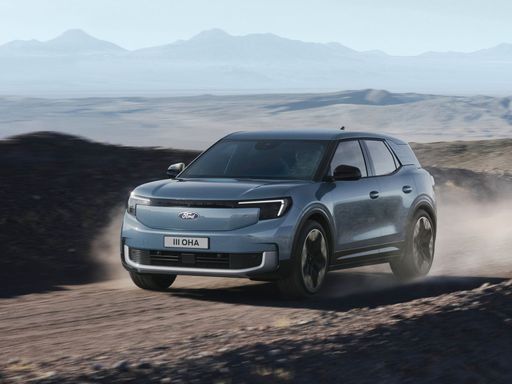
Ford Explorer EV
Ford Explorer EV
The Ford Explorer EV marks a significant step forward in the brand's journey towards electrification, offering an impressive blend of performance and sustainability. This modern SUV features a sleek design complemented by advanced technology that enhances the driving experience. With a focus on comfort and innovation, the Explorer EV aims to redefine family travel for the electric age.
details @ electricexplorer.fordpresskits.com
@ electricexplorer.fordpresskits.com
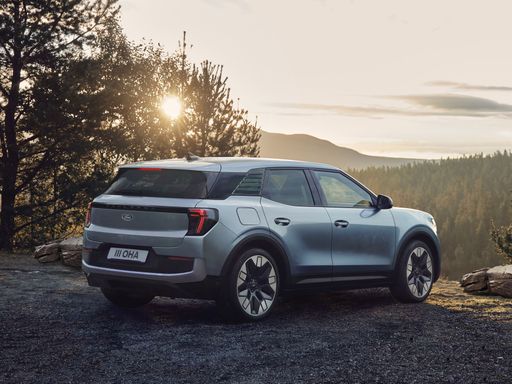 @ electricexplorer.fordpresskits.com
@ electricexplorer.fordpresskits.com
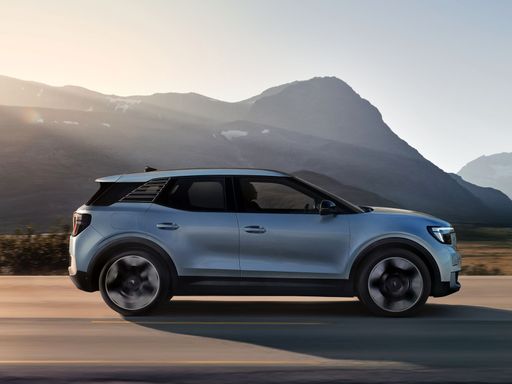 @ electricexplorer.fordpresskits.com
@ electricexplorer.fordpresskits.com
Peugeot 308
The Peugeot 308 presents a refined blend of style and sophistication, making it a compelling option for anyone in search of a dynamic yet practical vehicle. Its sleek design is complemented by a thoughtfully crafted interior that ensures both driver and passengers travel in comfort and elegance. Moreover, the 308 offers a responsive driving experience, combining agility with a sense of security on the road.
details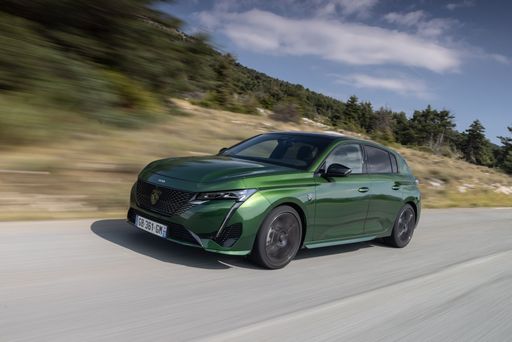 @ media.stellantis.com
@ media.stellantis.com
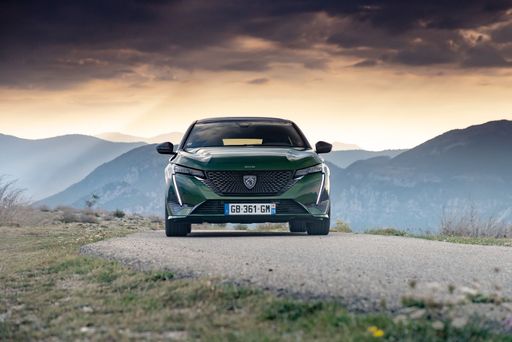 @ media.stellantis.com
@ media.stellantis.com
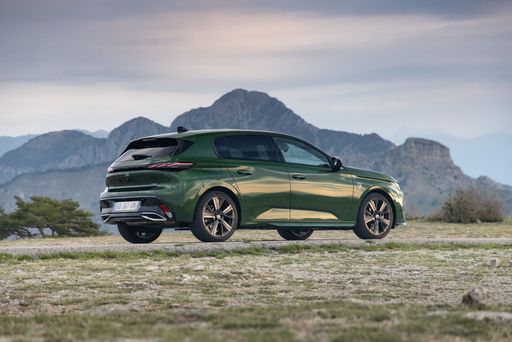 @ media.stellantis.com
@ media.stellantis.com
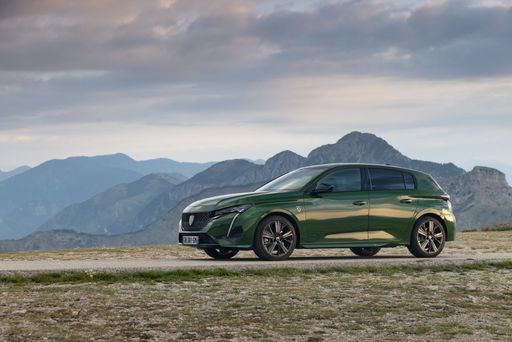 @ media.stellantis.com
@ media.stellantis.com
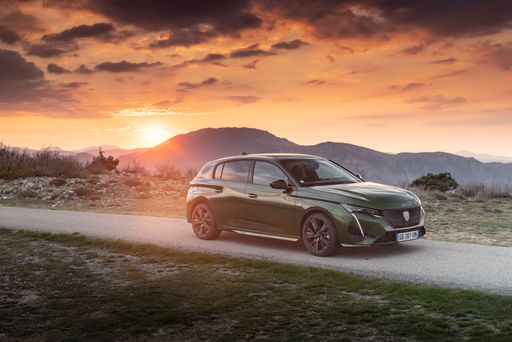 @ media.stellantis.com
@ media.stellantis.com
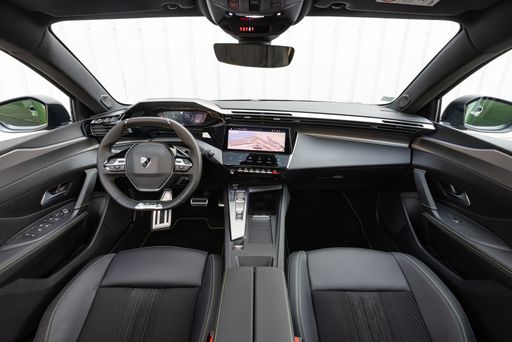 @ media.stellantis.com
@ media.stellantis.com

|

|
|
|
|
Costs and Consumption |
|
|---|---|
|
Price
34200 - 48800 £
|
Price
29200 - 41800 £
|
|
Consumption L/100km
-
|
Consumption L/100km
0.8 - 5.1 L
|
|
Consumption kWh/100km
14.5 - 17.2 kWh
|
Consumption kWh/100km
15.20 kWh
|
|
Electric Range
360 - 602 km
|
Electric Range
78 - 419 km
|
|
Battery Capacity
52 - 79 kWh
|
Battery Capacity
51 kWh
|
|
co2
0 g/km
|
co2
0 - 133 g/km
|
|
Fuel tank capacity
-
|
Fuel tank capacity
42 - 53 L
|
Dimensions and Body |
|
|---|---|
|
Body Type
SUV
|
Body Type
Hatchback
|
|
Seats
5
|
Seats
5
|
|
Doors
5
|
Doors
5
|
|
Curb weight
1908 - 2179 kg
|
Curb weight
1436 - 1759 kg
|
|
Trunk capacity
445 - 450 L
|
Trunk capacity
314 - 412 L
|
|
Length
4468 mm
|
Length
4367 mm
|
|
Width
1871 mm
|
Width
1852 mm
|
|
Height
1630 - 1639 mm
|
Height
1441 mm
|
|
Max trunk capacity
1417 - 1422 L
|
Max trunk capacity
1258 - 1323 L
|
|
Payload
561 - 585 kg
|
Payload
431 - 510 kg
|
Engine and Performance |
|
|---|---|
|
Engine Type
Electric
|
Engine Type
Diesel, Electric, Petrol MHEV, Plugin Hybrid
|
|
Transmission
Automatic
|
Transmission
Automatic
|
|
Transmission Detail
Reduction Gearbox
|
Transmission Detail
Automatic Gearbox, Reduction Gearbox, Dual-Clutch Automatic
|
|
Drive Type
Rear-Wheel Drive, All-Wheel Drive
|
Drive Type
Front-Wheel Drive
|
|
Power HP
170 - 340 HP
|
Power HP
130 - 195 HP
|
|
Acceleration 0-100km/h
5.3 - 8.7 s
|
Acceleration 0-100km/h
7.6 - 10.6 s
|
|
Max Speed
160 - 180 km/h
|
Max Speed
170 - 225 km/h
|
|
Torque
310 - 679 Nm
|
Torque
230 - 300 Nm
|
|
Number of Cylinders
-
|
Number of Cylinders
3 - 4
|
|
Power kW
125 - 250 kW
|
Power kW
96 - 144 kW
|
|
Engine capacity
-
|
Engine capacity
1199 - 1598 cm3
|
General |
|
|---|---|
|
Model Year
2024 - 2025
|
Model Year
2023 - 2025
|
|
CO2 Efficiency Class
A
|
CO2 Efficiency Class
D, A, C, B
|
|
Brand
Ford
|
Brand
Peugeot
|
What drive types are available for the Ford Explorer EV?
The Ford Explorer EV is available as Rear-Wheel Drive or All-Wheel Drive.
The prices and data displayed are estimates based on German list prices and may vary by country. This information is not legally binding.
